“They are places you go to when you’ve lost everything – but not before,” says Klaus Pichler of the Viennese bars that feature in his latest book, Golden Days Before They End, released in June and now in its third reprint. It’s one of two books Pichler shot in 2016. The other, This Will Change Your Life Forever, currently in the design stage and due to be published in October, is a sarcastic critique of the esotericism industry and the photography that feeds it.
Pichler collaborated on Golden Days with journalist Clemens Marschall, who was familiar with Vienna’s rapidly disappearing old dive bars and the often ‘colourful’ patrons that clung to them. “Clemens has always gone to these bars,” explains Pichler. “He doesn’t like to go to fancy places. Five years ago he noticed that these bars are beginning to close down because of increased regulation, an inability to adapt to a changing city, and a dying clientele.”

From the series Golden Days Before They End © Klaus Pichler 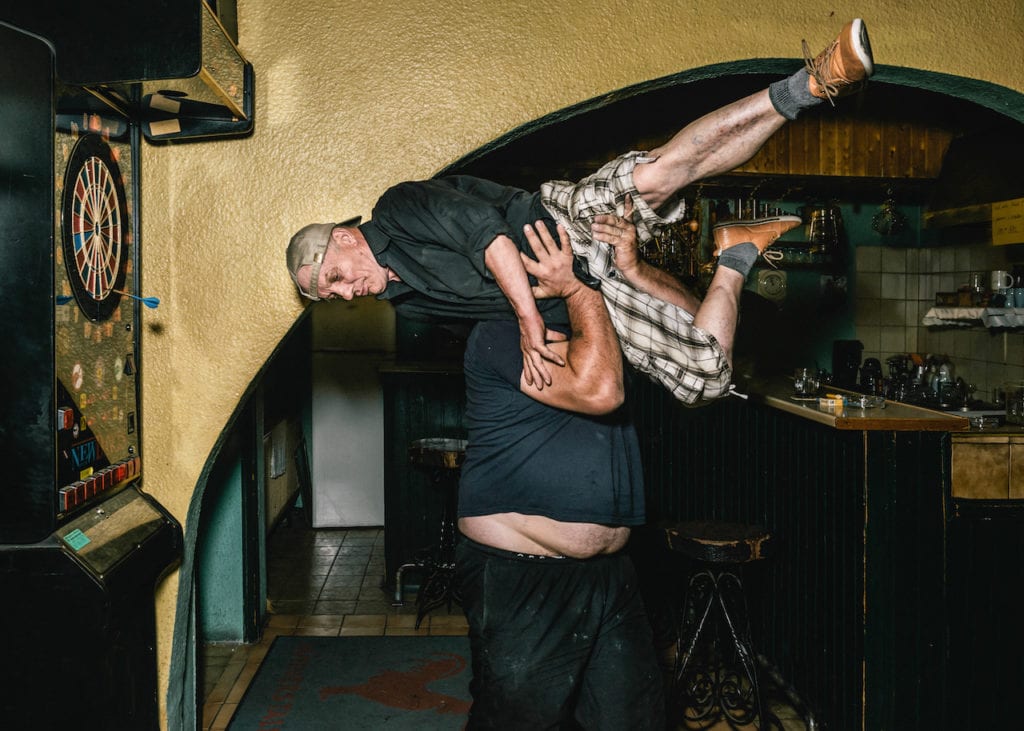
From the series Golden Days Before They End © Klaus Pichler
“On that first visit, two people punched each other in the face; by the third or fourth visit, I began talking to people. I thought, OK, I have to be open, I have to tell people what I’m doing and then it won’t be a problem any more. On the fifth or sixth visit, I took out my camera. Then people became interested. They knew this generation of bars is coming to an end and were really happy to have somebody interested in them.”
Pichler collaborated on Golden Days with journalist Clemens Marschall, who was familiar with Vienna’s rapidly disappearing old dive bars and the often ‘colourful’ patrons that clung to them. “Clemens has always gone to these bars,” explains Pichler. “He doesn’t like to go to fancy places. Five years ago he noticed that these bars are beginning to close down because of increased regulation, an inability to adapt to a changing city, and a dying clientele.”


“On that first visit, two people punched each other in the face; by the third or fourth visit, I began talking to people. I thought, OK, I have to be open, I have to tell people what I’m doing and then it won’t be a problem any more. On the fifth or sixth visit, I took out my camera. Then people became interested. They knew this generation of bars is coming to an end and were really happy to have somebody interested in them.”
The thing that makes Golden Days different from other bar projects from the region, such as the classic but little-known Weinhaus by fellow Austrian Leo Kandl, is that Golden Days chronicles a bar culture that is dying, a clientele that is dying and, ultimately, a working class that is dying. “We met Kandl and he was really shocked by the images. He said: ‘It’s crazy, you can’t compare them with mine.’
“He said the people in his book all had jobs and went to the bars after work, while the people in my book don’t work. Mine is something different, because the job isn’t important any more since nobody has one.”
The other thing that makes Golden Days unusual is the role of the camera. “In a classic book like Anders Petersen’s Café Lehmitz the guests are often not aware they are being photographed,” he says. “In my case, the camera became the centre of the room.” So you see people wrestling, people getting naked, people reliving William Tell in front of a dartboard.
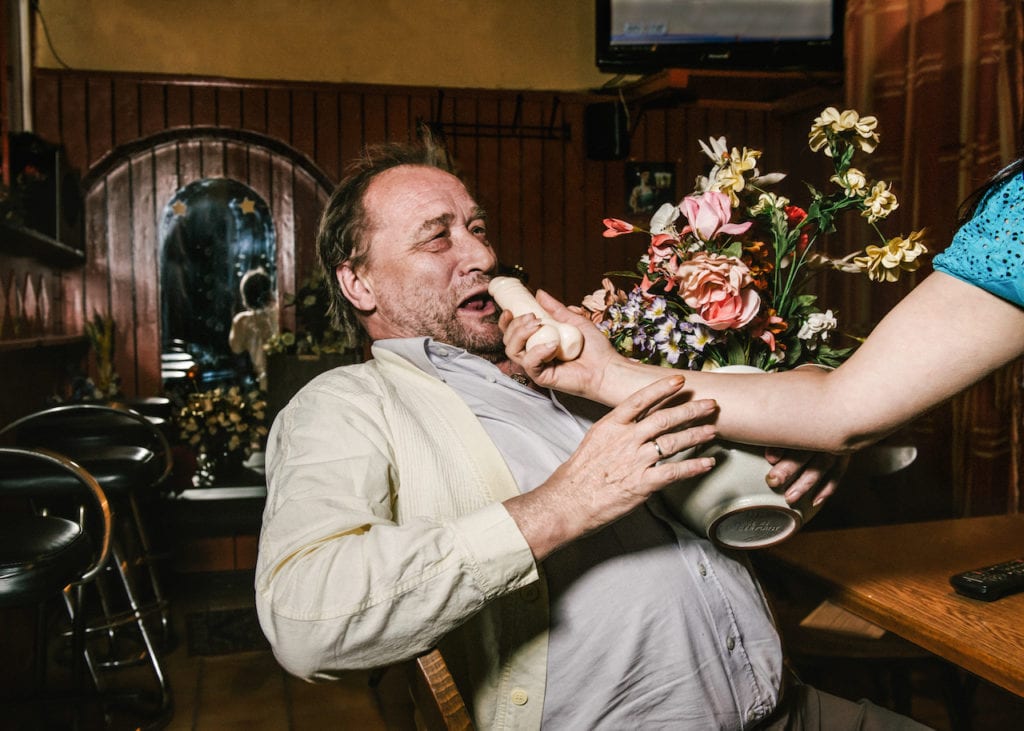
From the series Golden Days Before They End © Klaus Pichler
Working with a writer was important for Pichler – it helped give his images a cultural grounding and elevated them above the superficial. “We made a clear decision that we wanted to tell the story from both sides of the bar, so Clemens interviewed the owners and I photographed the regulars. We thought the two layers of the story would confront each other. We knew the owners just wanted to make money and have everything run smoothly, and the guests wanted to freak out. They wanted an adult playground.”
“He said the people in his book all had jobs and went to the bars after work, while the people in my book don’t work. Mine is something different, because the job isn’t important any more since nobody has one.”
The other thing that makes Golden Days unusual is the role of the camera. “In a classic book like Anders Petersen’s Café Lehmitz the guests are often not aware they are being photographed,” he says. “In my case, the camera became the centre of the room.” So you see people wrestling, people getting naked, people reliving William Tell in front of a dartboard.

Working with a writer was important for Pichler – it helped give his images a cultural grounding and elevated them above the superficial. “We made a clear decision that we wanted to tell the story from both sides of the bar, so Clemens interviewed the owners and I photographed the regulars. We thought the two layers of the story would confront each other. We knew the owners just wanted to make money and have everything run smoothly, and the guests wanted to freak out. They wanted an adult playground.”
In This Will Change Your Life Forever, Pichler puts himself centre stage. “Two friends of mine disappeared from my life through esotericism: one through meditation and the other through a psychological crisis, where he began to feel energies and thought these energies were entities,” he says. “I was so shocked at how people who were very close to me had been duped, how they changed in such a short time, and how they became unapproachable on a rational basis.”
So Pichler began to research esotericism – orbs, auras, energies and ectoplasm – and investigated how easily the gullible can succumb to it. Then he set out to reproduce this in book form, creating a kind of guide to the photographic language of this world. “In my opinion, esotericism is about selling things to people who are in crisis,” he says. “It’s about people building their careers on the faith of people who find themselves in difficult situations, which is really, really shabby, if you ask me.
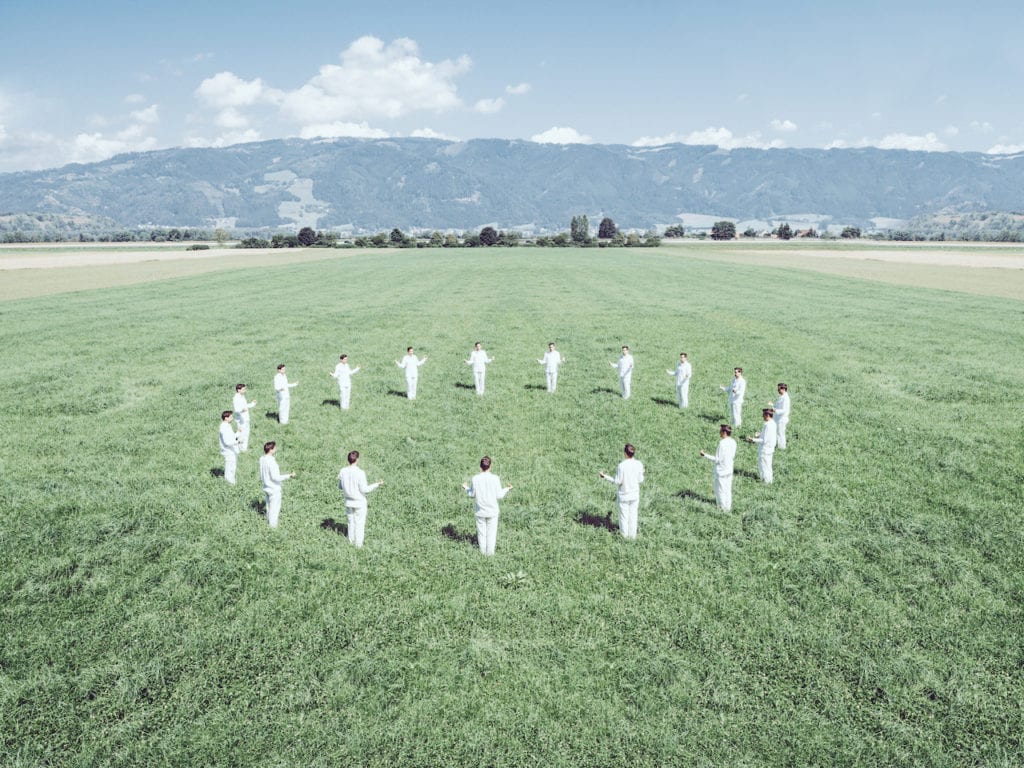
From the series This Will Change Your Life © Klaus Pichler
“Esotericism is always about oneself, it’s not about helping other people,” he continues. “It’s this big ‘ME’ thing, so I thought this project would only be credible if I put myself into it and claimed to be a hardcore esotericist. It’s so stupid and so shallow. I found that everything is just a trick: look at the angel appearing on a hill, for which I’m actually standing on a 3m-tall pile of soil on a construction site. For this I went to the pharmacy and asked what is the most embarrassing cream people buy, and the pharmacist said, ‘It’s haemorrhoid cream. People are really ashamed to buy that.’
“So I bought some haemorrhoid cream and put it on the lens, then I bought some reflective tape and put it on a training suit and photographed myself. And because of the haemorrhoid cream on the lens, there are these kinds of rays coming off me. And that’s how esoteric photography works – with reflections and dust motes and long exposures with mysterious foggings. It’s so stupid, and it’s so easy to reproduce.”
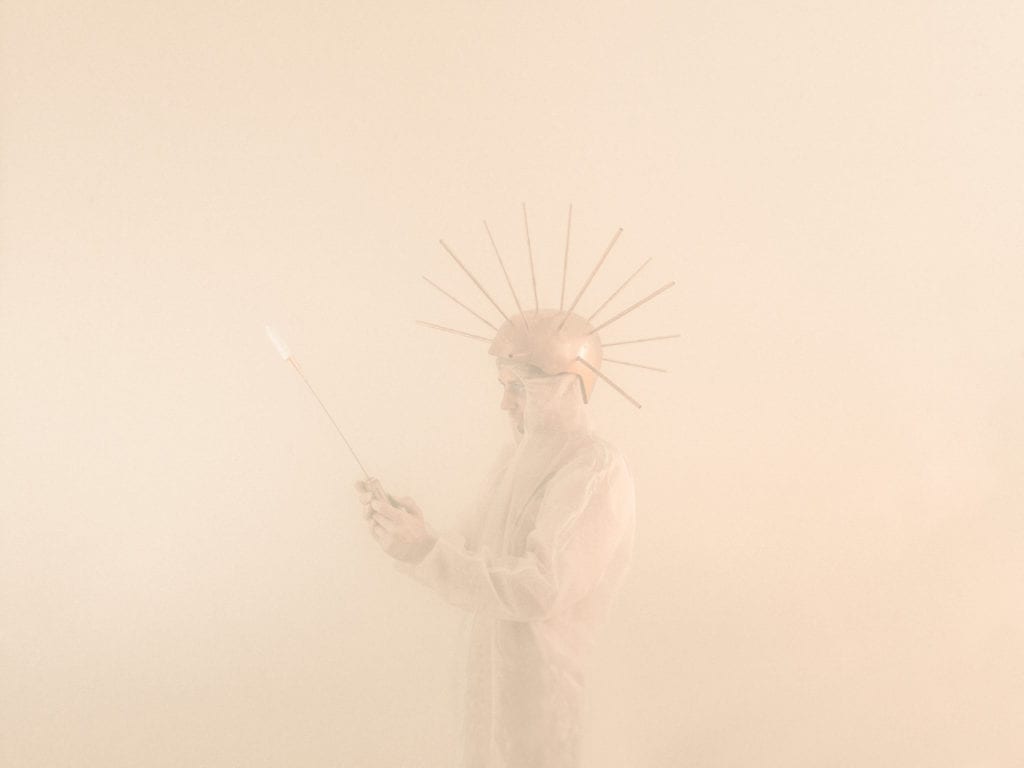
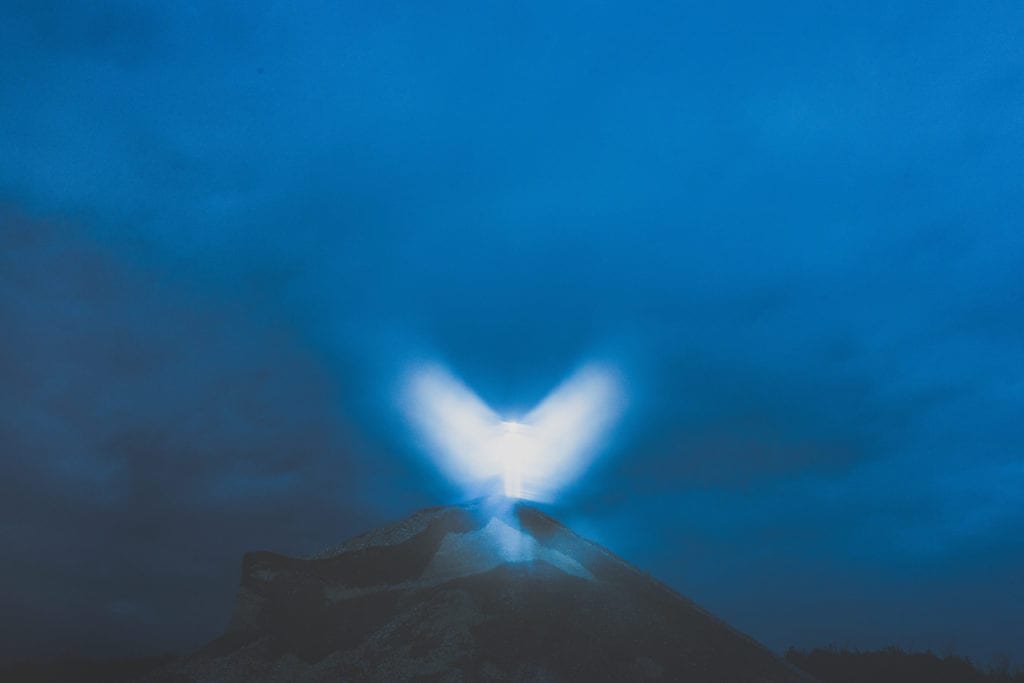
From the series This Will Change Your Life © Klaus Pichler
So Pichler began to research esotericism – orbs, auras, energies and ectoplasm – and investigated how easily the gullible can succumb to it. Then he set out to reproduce this in book form, creating a kind of guide to the photographic language of this world. “In my opinion, esotericism is about selling things to people who are in crisis,” he says. “It’s about people building their careers on the faith of people who find themselves in difficult situations, which is really, really shabby, if you ask me.

“Esotericism is always about oneself, it’s not about helping other people,” he continues. “It’s this big ‘ME’ thing, so I thought this project would only be credible if I put myself into it and claimed to be a hardcore esotericist. It’s so stupid and so shallow. I found that everything is just a trick: look at the angel appearing on a hill, for which I’m actually standing on a 3m-tall pile of soil on a construction site. For this I went to the pharmacy and asked what is the most embarrassing cream people buy, and the pharmacist said, ‘It’s haemorrhoid cream. People are really ashamed to buy that.’
“So I bought some haemorrhoid cream and put it on the lens, then I bought some reflective tape and put it on a training suit and photographed myself. And because of the haemorrhoid cream on the lens, there are these kinds of rays coming off me. And that’s how esoteric photography works – with reflections and dust motes and long exposures with mysterious foggings. It’s so stupid, and it’s so easy to reproduce.”


Pichler uploaded the images on various esoteric Facebook pages and watched incredulously as the likes and the comments piled in. His angel images immediately gained 79 likes and comments that expressed envy at Pichler’s power to get wishes granted from his haemorrhoid cream-inspired angels. For Pichler, it’s evidence of what he calls the “swarm stupidity” of the digital age.
“In terms of social media and the internet, everybody talks about swarm intelligence, but I talk about swarm stupidity,” he says. “Swarm intelligence is when you post a question or a problem on the internet and people help you find a solution or answer the question. But then if you post something like “gravity is an illusion” you’ll find 10 idiots who support you and 100 idiots who are in the mood for being convinced, and suddenly it’s a movement.”
https://kpic.at/ Golden Days Before They End is published by Edition Patrick Frey www.editionpatrickfrey.com The series is on show at the Photon Gallery, Ljubljana from 07 September-06 October https://photon.si/
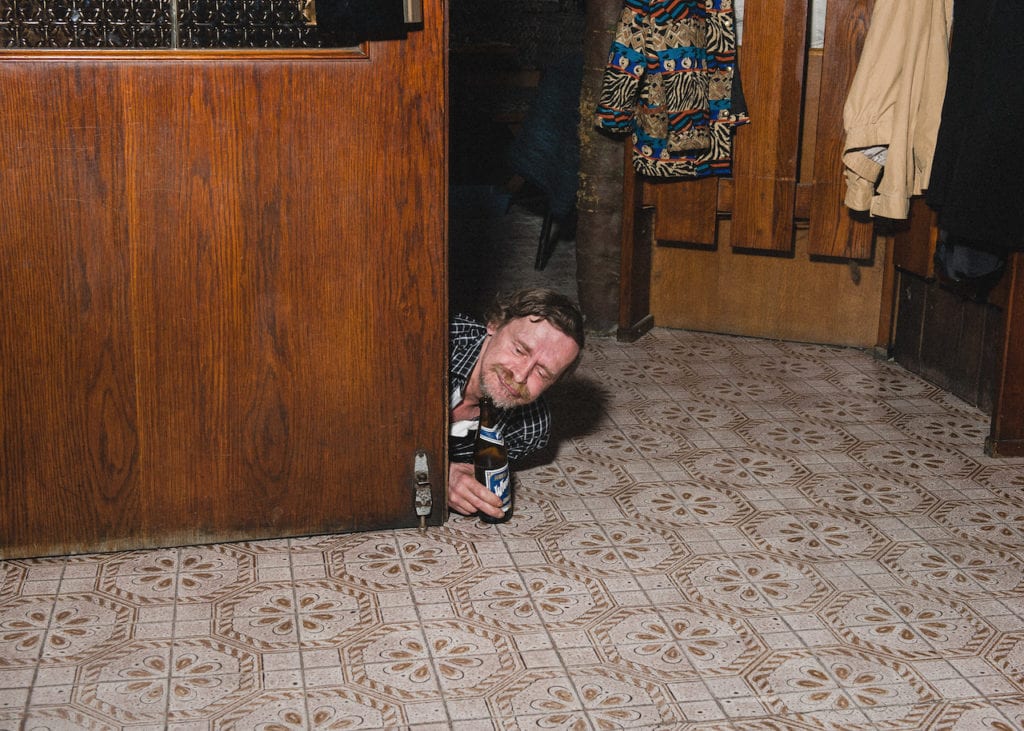
From the series Golden Days Before They End © Klaus Pichler 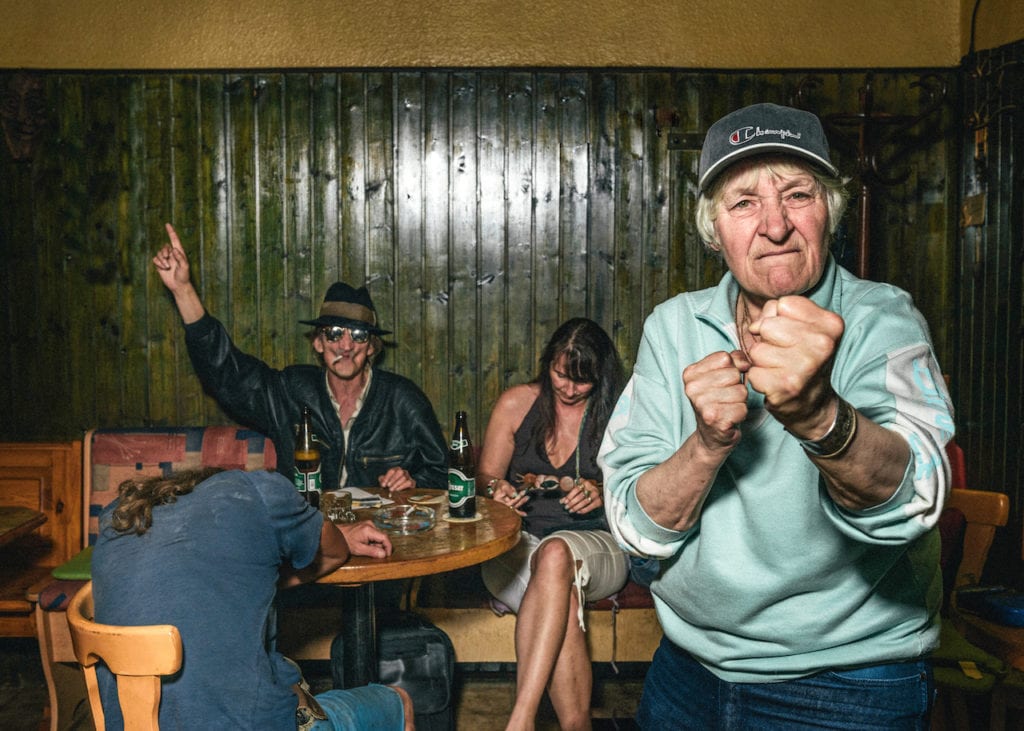
From the series Golden Days Before They End © Klaus Pichler 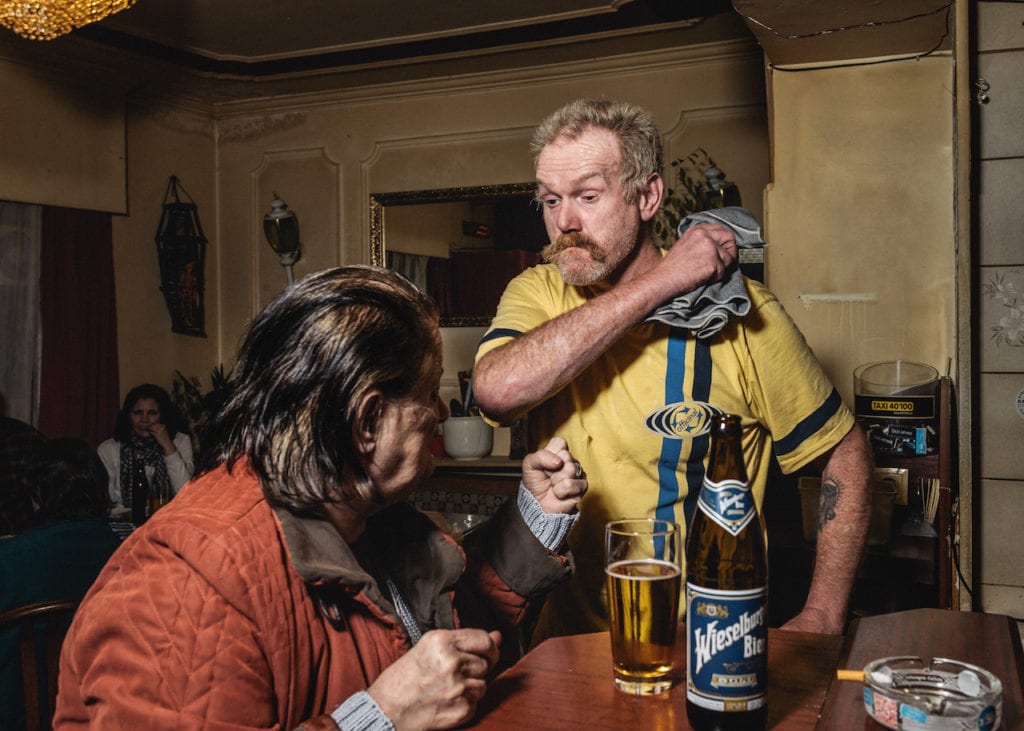
From the series Golden Days Before They End © Klaus Pichler 
From the series Golden Days Before They End © Klaus Pichler 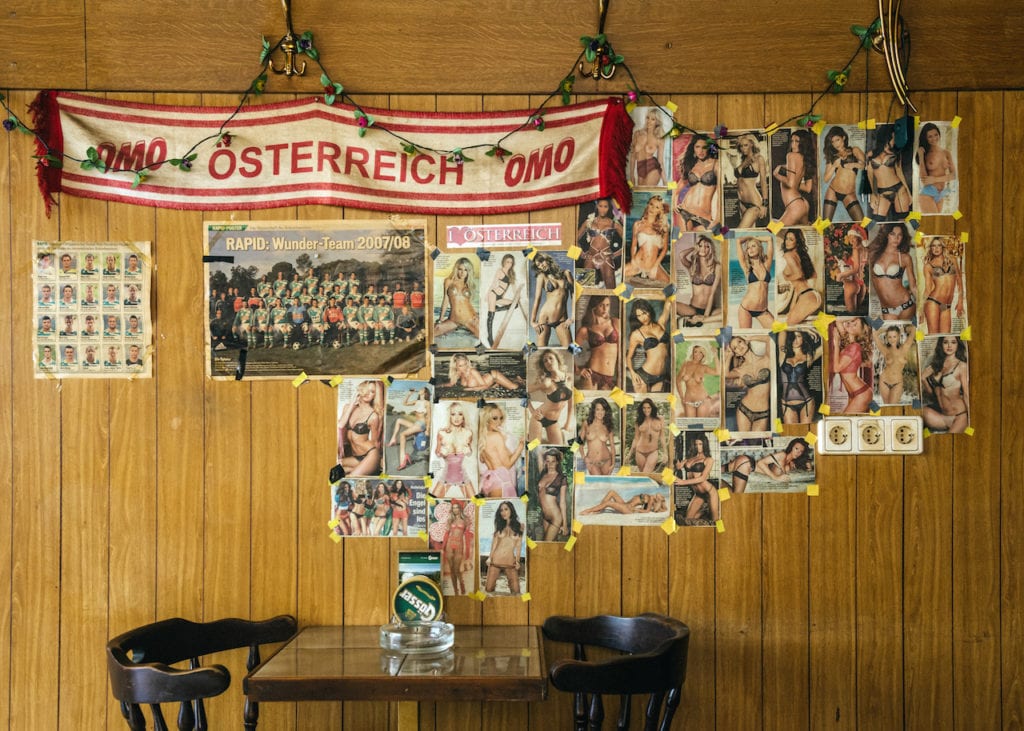
From the series Golden Days Before They End © Klaus Pichler
“In terms of social media and the internet, everybody talks about swarm intelligence, but I talk about swarm stupidity,” he says. “Swarm intelligence is when you post a question or a problem on the internet and people help you find a solution or answer the question. But then if you post something like “gravity is an illusion” you’ll find 10 idiots who support you and 100 idiots who are in the mood for being convinced, and suddenly it’s a movement.”
https://kpic.at/ Golden Days Before They End is published by Edition Patrick Frey www.editionpatrickfrey.com The series is on show at the Photon Gallery, Ljubljana from 07 September-06 October https://photon.si/






